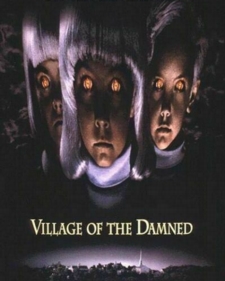 Guy walks into a restaurant and orders “scrambled eggs and some kind words.” Waitress brings the eggs. He smiles, “Now how about the kind words?” Waitress whispers, “Don’t eat the eggs.”
Guy walks into a restaurant and orders “scrambled eggs and some kind words.” Waitress brings the eggs. He smiles, “Now how about the kind words?” Waitress whispers, “Don’t eat the eggs.”
Which brings us to the fact that urban public school teachers are about twice as likely as non-teachers to send their own children to private schools. That is, many public school teachers whisper to parents, “Don’t eat the eggs.”
About 11% of all parents — nationwide, rural and urban — send their children to private schools. The numbers are much higher in urban areas. One study found that in Philadelphia a staggering 44% of public school teachers send their own kids to private schools.
In Cincinnati and Chicago, 41% and 39% of public school teachers pay for a private school education for their children. In Rochester, N.Y., it’s 38%, in Baltimore 35%, in San Francisco 34% and in New York-northeastern New Jersey 33%.
In Los Angeles nearly 25% of public school teachers send their kids to private school versus 16% of Angelenos who do so.
The 2004 study by the Fordham Institute said its findings “are apt to be embarrassing for teacher unions, considering those organizations’ political animus toward assisting families to select among schools. But these results do not surprise most practicing teachers to whom we speak.”
“The data have shown the same basic pattern since we first happened upon them two decades ago: Urban public school teachers are more apt to send their own children to private schools than is the general public. One might say this shows how conservative teachers are. They continue doing what they’ve always done. Or it might indicate that they have long been discerning connoisseurs of education …
“The middle class will tolerate a lot — disorder, decay and dismay, an unwholesome environment, petty crime, potholes, chicanery and rudeness. One thing, however, that middle class parents will not tolerate is bad schools for their children. To escape them, they will pay out-of-pocket or vote with their feet. That is what discerning teachers do.”
What about members of Congress? Where do they send their own children? A 2007 Heritage Foundation study found that 37% of representatives and 45% of senators with school-age children sent their own kids to private school.
Of the members of the Congressional Hispanic Caucus with school-age children, 38% sent them to private school. Of the members of the Congressional Black Caucus with school-age children, 52% sent them to private school.
The ex-mayor of Los Angeles, Antonio Villaraigosa, was asked why he didn’t have his own kids in public school despite his strong advocacy of public education. Villaraigosa, whose wife was a public school teacher, said:
“I’m doing like every parent does. I’m going to put my kids in the best school I can. My kids were in a neighborhood public school until just this year. We’ve decided to put them in a Catholic school. We’ve done that because we want our kids to have the best education they can.
“If I can get that education in a public school, I’ll do it, but I won’t sacrifice (emphasis added) my children any more than I could ask you to do the same.”
When he got elected president, Barack Obama and his wife made a big display of looking into Washington, D.C., public schools for his two daughters to attend. But the Obamas chose Sidwell Friends, the elite private school whose alums include Chelsea Clinton.
Obama’s own mother sent her then-10-year-old to live with her parents — so he could attend Punahou Academy, the most exclusive prep school in Honolulu. In fact, from Punahou to Occidental (a private college in Los Angeles) to Columbia (where he completed college) to Harvard Law, Obama is a product of private education.
So how does this square with Obama’s opposition to the D.C. Opportunity Scholarship Program that offered a voucher for the children of participating parents? It doesn’t.
Here’s what Obama’s Office of Management and Budget said about the program: “Rigorous evaluation over several years demonstrates that the D.C. program has not yielded improved student achievement by its scholarship recipients compared to other students in D.C.“
Tell that to the educator/consultant the Department of Education hired to evaluate the program. Testifying before the Senate Committee on Homeland Security, Patrick Wolf, a University of Arkansas education policy professor who spent more than 10 years evaluating school choice programs in D.C., Milwaukee, New York and Dayton, Ohio, said:
“In my opinion, by … boosting high school graduation rates and generating a wealth of evidence suggesting that students also benefited in reading achievement, the D.C. OSP has accomplished what few educational interventions can claim: It markedly improved important education outcomes for low-income inner-city students.”
President Obama calls education “the civil rights issue of our time.” Yet his opposition to K-12 education vouchers guarantees that many of America’s kids will sit in back of the bus.
Written by Larry Elder for Investor’s Business Daily, October 16, 2013.
FAIR USE NOTICE: This site contains copyrighted material the use of which has not always been specifically authorized by the copyright owner. We are making such material available in our efforts to advance understanding of environmental, political, human rights, economic, democracy, scientific, and social justice issues, etc. We believe this constitutes a ‘fair use’ of any such copyrighted material as provided for in section 107 of the US Copyright Law. In accordance with Title 17 U. S. C. Section 107, the material on this site is distributed without profit to those who have expressed a prior interest in receiving the included information for research and educational purposes. For more information go to: http://www. law. cornell. edu/uscode/17/107. shtml“
